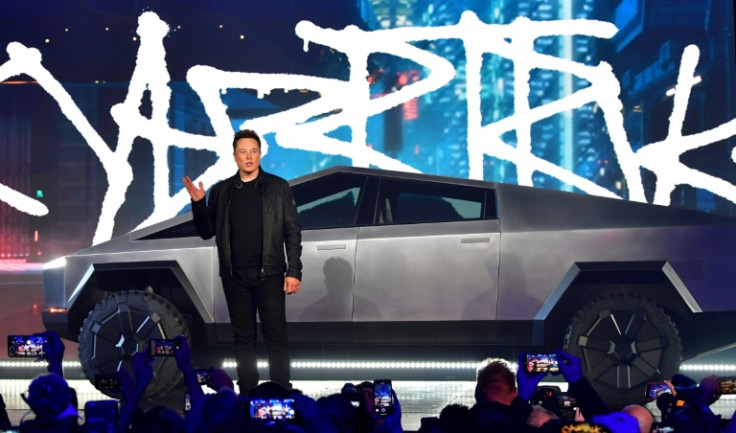Tesla Files Recall On 2 Mn Vehicles To Fix Autopilot Software
Electric car maker Tesla has initiated a recall of over two million vehicles in the United States due to risks associated with the autopilot software, the US traffic safety regulator said Wednesday.

Electric car maker Tesla has initiated a recall of over two million vehicles in the United States due to risks associated with the autopilot software, the US traffic safety regulator said Wednesday.
In cases where vehicle operators misuse Tesla's driver-assistance program or fail to recognize when the system won't work well, "there may be an increased risk of a collision," said a notice from the National Highway Traffic Safety Administration.
The recall affects models across Tesla's portfolio and will be addressed by an "over-the-air software remedy" typically performed remotely and not involving a trip to a repair shop.
"While not concurring with the agency's analysis," Tesla agreed to "voluntarily administer a recall" to resolve the matter, NHTSA said.
Tesla co-founder and chief executive Elon Musk has spoken bullishly over the years of the potential for cars to reach full autonomy, but the company's official guidelines says drivers must remain at the wheel while using Autopilot.
After a two-year probe, NHTSA found that Autopilot "can provide inadequate driver engagement and usage controls that can lead to foreseeable misuse of the system."
"NHTSA's investigation remains open as we monitor the efficacy of Tesla's remedies," an agency spokesperson said.
"Automated technology holds great promise for improving safety but only when it is deployed responsibly; today's action is an example of improving automated systems by prioritizing safety."
Tesla did not respond to an AFP request for comment.
Tesla's Autopilot program has spurred numerous government investigations as well as media exposes focusing on misuse or vulnerabilities.
The system has also been targeted in lawsuits. In October, a California jury rejected a plaintiff's suit against Tesla which claimed that a fatal 2019 crash was the result of the company's "reckless and negligent behavior."
Michael Brooks, executive director of the Center for Auto Safety, an NGO, said the recall announcement would likely reduce crashes.
But he faulted the NHTSA for not addressing a pattern of Autopilot failing to detect emergency vehicles. The agency has probed this issue following crashes, but did not mention it in the notice.
"This fits neatly into the established pattern where Tesla markets greatly advanced vehicle capabilities up to the point of full autonomy, but then blames inattentive drivers when those vehicles ultimately fail to achieve that promise," Brooks said in an email.
The recall covers 2.03 million Tesla vehicles and includes Models S, X, Y and 3.
Tesla says Autopilot should be used by "a fully attentive driver, who has their hands on the wheel," according to its website.
But the program's name has been criticized as misleading, and widely-seen social media posts have featured joy rides by users flouting the official guidelines.
Critics, such as Jennifer Homendy, head of the National Transportation Safety Board, a US watchdog agency, criticized both Tesla and NHTSA for not taking safety seriously regarding Autopilot's vulnerabilities.
Through the "over-the-air update" remedy, the company will install additional alerts to encourage drivers to keep their hands on the steering wheel.
Remedies could include additional checks on user engagement "and eventual suspension from Autosteer use if the driver repeatedly fails to demonstrate continuous and sustained driving responsibility while the feature is engaged," according to the NHTSA document.
Shares of Tesla were up 0.3 percent in afternoon trading after holding in negative territory.
CFRA Research analyst Garrett Nelson called Tesla's action "a non-event," adding "headlines calling this a 'recall' are misleading. Instead, it is a quick over-the-air update of Autopilot software."
But Neil Saunders of GlobalData rated the news as "something of a setback" for Tesla.
"While Tesla refutes some of the NHTSA's claims, this will raise some questions in consumer minds about technology around self-driving and driver assistance," Saunders said.
"Given that the problems can be resolved via a software update this isn't a financial disaster for Tesla and the issues should be quickly fixed."
© Copyright AFP 2025. All rights reserved.





















